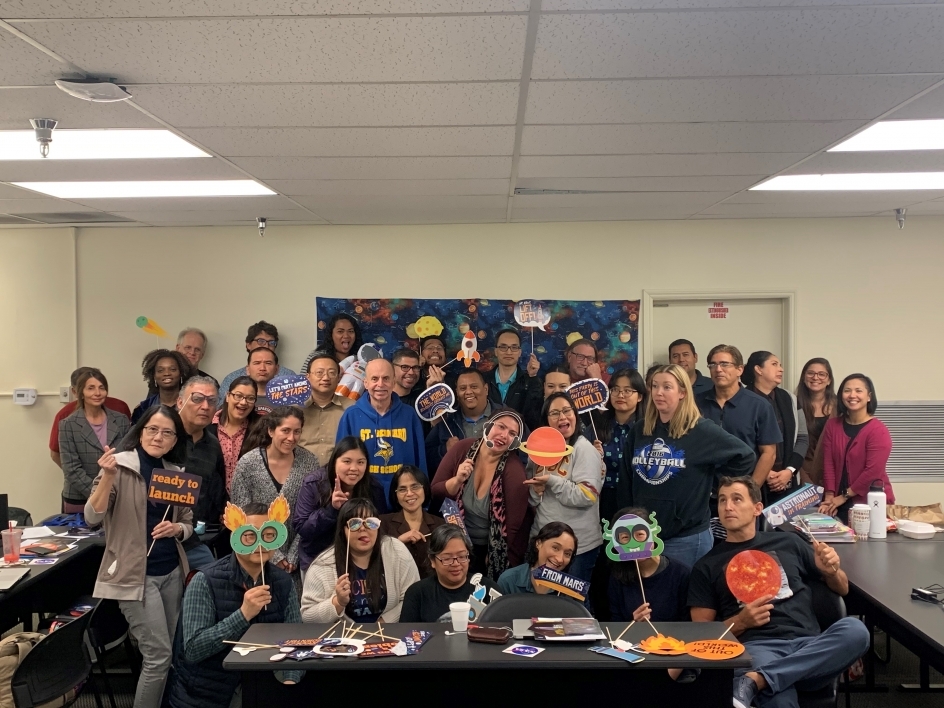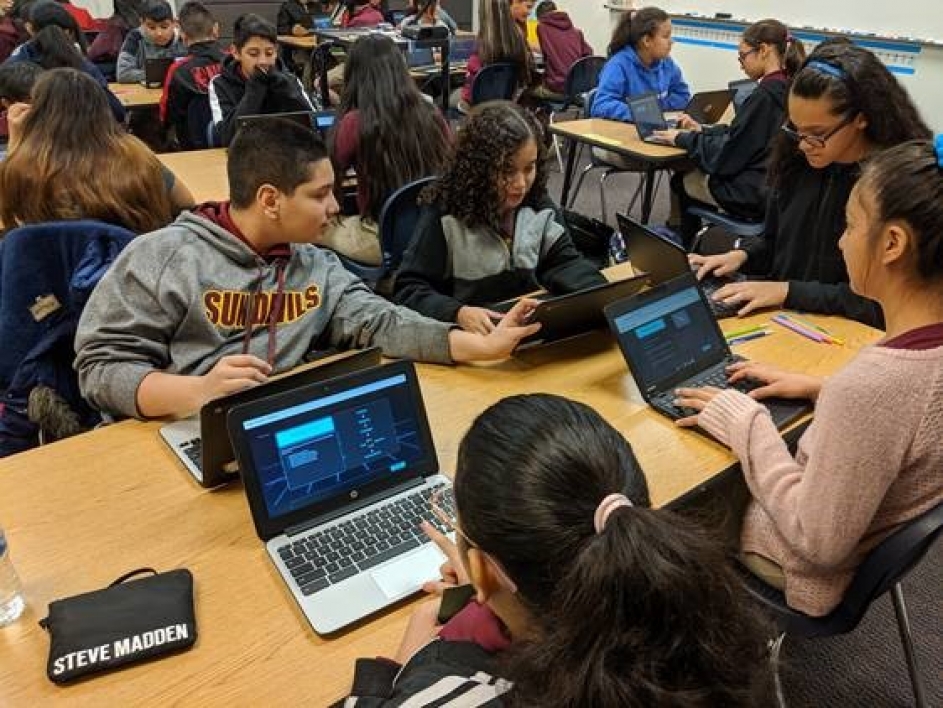ASU's NASA-funded Infiniscope program empowers teachers to become creators of digital learning experiences

New York State Master Teachers received training on building their own adaptive learning experiences for their classrooms at a recent Infiniscope-sponsored professional development event. Credit: ASU/ETX
Arizona State University's NASA-funded Infiniscope project provides next-generation exploratory science activities and lessons designed to empower educators to collaborate, create and customize learning activities. The activities are unique in that they use NASA data and NASA subject matter experts, and they include adaptive feedback features for individual learners.
The Infiniscope project, created by the School of Earth and Space Exploration’s Center for Education Through Exploration and supported by NASA's Science Mission Directorate, begins its fifth year in providing adaptive learning experiences that support educators and the curricular gaps they encounter.
To launch their fifth year of the program, the Infiniscope team has announced the members of the 2020-21 Education Advisory Board. This board represents a select team of educators who will focus on increasing awareness of the resources and the community that Infiniscope provides to teachers on a national level.
"The Infiniscope Education Advisory Board members are key to our success, giving us insight into what really works in the classroom, and giving new members of the Infiniscope community great examples to learn from,” said Ariel Anbar, principal investigator of Infiniscope and President’s Professor with the School of Earth and Space Exploration.
Members represent a variety of states across the U.S. The majority of board members are educators in middle school and high school. The board also includes educators from libraries, after-school programs and science centers. Almost all members have more than 10 years of teaching experience.
The new members of the Infiniscope Advisory Board are Craig Sipes, Sarah Aguiñaga, Keith Comfort, April Lanotte, Bailey Nafziger, Sandy Watson, Jennifer Smith, Dana Kosztur, Kathy Biernat, Audrey Foote, Vernon Callwood, Seyi Okuneye, Jerry Citron, Aoife Runyan, Melissa Cable Sleeper, Susan Groff and Bruce Boehne.
“Infiniscope lessons offer a creative and applicable format to supplement classroom learning,” said new board member Comfort, from Jamesville-Dewitt High School in New York. “The idea of adaptive learning lessons that can be catered to many different levels of students is vital to the future of science education and I'm excited to be a part of the Infiniscope team.”
Returning members include Debbie Morgan, Alison Keene, Helen Coyle, Diane Ripollone, Elizabeth Sebastian, Maki Fullerton, Noelle Luccioni, Christine Girtain, Jeannine Gelhaus, Jose Rivas, Katrina Madok, Natasha Rabinowitz, Luna Kelondra, Sian Proctor and Paul Munshower.
“Because of Infiniscope, I have been able to bring space exploration into my lab, allowing my students to travel and explore various aspects of our universe," said Luccioni, returning board member and STEM teacher at Philadelphia Performing Arts.
The current board will serve through January 2021 and will be providing guidance on universal design for learning principles for all Infiniscope lessons, input on a template that will enable teacher-created virtual field trips and Infiniscope website design for version 2.0. In addition, the board will participate in workshops and conferences, social media engagements and community engagements to share Infiniscope and establish connections within the community.
"As a returning Infiniscope advisory board member, I look forward to engaging a new group of leaders in earth and space education,” said Girtain, a teacher at Toms River High School in New Jersey. “We will be training teachers at workshops and sharing curriculum that features NASA visuals and interactive components to make adaptive learning experiences for students."
Video courtesy: ASU/SESE/ETX
How to become involved in Infiniscope
Educators who are interested in serving on the board next year first need to join the Infiniscope teaching network. Invitations to apply will be sent to teaching network members this winter with selections occurring in early 2021 for the 2021–22 academic year.
The board is selected through a competitive process. Candidates are required to be educators and members of the Infiniscope teaching network. They also need to be dedicated to improving the quality of education products and willing to inspire their community to participate in the educational opportunities.
More Science and technology

ASU-led space telescope is ready to fly
The Star Planet Activity Research CubeSat, or SPARCS, a small space telescope that will monitor the flares and sunspot activity…

ASU at the heart of the state's revitalized microelectronics industry
A stronger local economy, more reliable technology, and a future where our computers and devices do the impossible: that’s the…

Breakthrough copper alloy achieves unprecedented high-temperature performance
A team of researchers from Arizona State University, the U.S. Army Research Laboratory, Lehigh University and Louisiana State…




